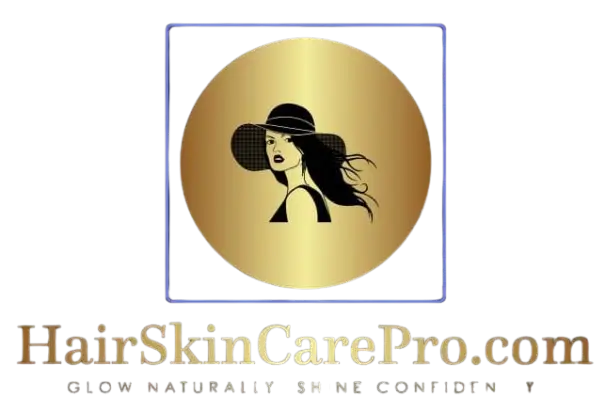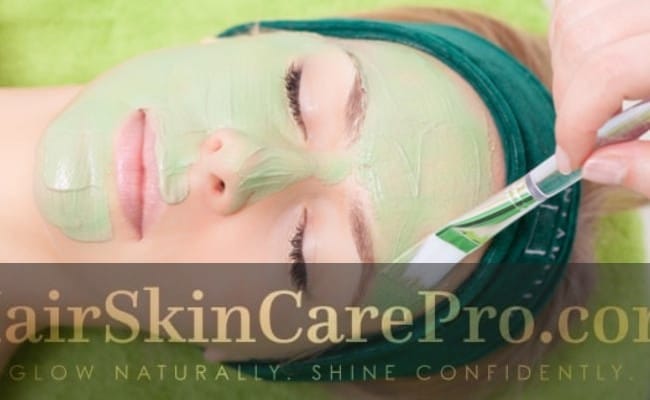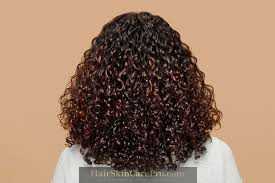Creating Homemade skin care products for glowing skin can be a rewarding and cost-effective way to achieve glowing skin using natural ingredients. In this blog, I’ll explore a variety of DIY recipes, tips, and routines to help you achieve that radiant complexion.
Introduction: The Upsides – Natural Skincare|Homemade skin care products for glowing skin
In a world where synthetic elements and chemicals reign supreme in the skincare industry, more and more are returning to nature for their beauty rituals. DIY skin care recipes provide a safe, gentler and highly personalized skin care solution. When you choose the right components, you can simulate goods suited for your skin type and needs, giving your skin the food they need.
Why You Should Create Your Own Skincare Products
Use of Nature: Making your own skincare gives you control over the ingredients, which means you can leave out harmful chemicals and preservatives.
Affordable Aspect: Many natural components are readily available and affordable, making doing your own skin care a cost-effective option.
Personalization: You can customize your concoctions, matching them with your skin type and specific concerns.
Eco-Friendly Mentality: When you create your own skincare items, you cut packagings and carbon footprint.
Essential Ingredients to Create Your Own Skin Care Products
These are the more general base oils that provide important nutrients for the skin like coconut oil, almond oil, jojoba oil, olive oil etc.Homemade skin care products for glowing skin.
Plant based Essences: Highly concentrated extracts ofplants that have various benefits for the skin while adding aromato your blends. And popular options have included lavender, tea tree, and chamomile essences.
Rich Butters: Moisturizing butters such as shea, cocoa, and mango that are very nourishing to the skin.
Organic scrubs Natural exfoliates such as sugar, salt, coffee grounds, and oatmeal that softly scrub off dead skin.
Hydrating waters: Refreshing and hydrating toners like rosewater, witch hazel, and chamomile water.
Purifying Clays: Bentonite, kaolin, and French green clay are detoxifying agents that cleanse and purify.Homemade skin care products for glowing skin.
Botanical Extracts: Extracts of herbs like aloe vera, green tea, and calendula known for their soothing and healing properties.
DIY Skin Care Recipes for Glowing Skin|Homemade skin care products for glowing skin
1. Mild Facial Cleansing Solution
Ingredients:
2 tbsp honey
1 tbsp castile soap
1 tbsp jojoba oil
— 5 drops lavender essential oil
– INSTRUCTIONS: Mix all ingredients in a small container. Tip: Apply to damp skin, rub gently, then wash off with warm water and pat dry.
2. Invigorating Sugar Scrub
Ingredients:
1/2 cup sugar
1/4 cup coconut oil
1 tsp vanilla extract
5 drops lemon essential oil
Directions: Combine all ingredients in a bowl. Apply the scrub on wet skin and massage in circular motions. Rinse well for soft, glowy skin.
Recipe for a hydrating face mask
Ingredients:
1 ripe avocado
2 tablespoons plain yogurt
1 tablespoon honey
5 drops rose essential oil
Directions: Mash the avocado in a bowl, then mix in the yogurt, honey and essential oil. Slather it on your face, leave for 15-20 mins Rinse thoroughly with lukewarm water and pat dry.
Soothing Toner Recipe
Ingredients:
1/2 cup rosewater
1/4 cup witch hazel
5 drops of chamomile essential oil
Directions: Mix all of the ingredients in a spray bottle. Spray lightly on your face after cleansing to balance and soothe the skin.
Recipe for a Moisturizing Body Butter(Homemade skin care products for glowing skin)
Ingredients:
1/2 cup shea butter
1/4 cup coconut oil
1/4 cup almond oil
10 drops organic lavender essential oil
HOW-TOS: To start, place shea butter and coconut oil in a double boiler to melt. Melt, take off the heat, stir in almond oil and a few drops of essential oil, and let it cool and harden. Beat the mixture until it is light and fluffy. Apply to body for deep moisturization.
Tips for Radiant Skin
Routine is Key: You will get the best results possible if you continuously use your homemade products.
STAY WELL-HYDRATED: The key to hydrated, glowing skin over the winter months is drinking enough water.
Consume a Balanced Diet: Stacks of fresh fruits, veggies and healthy fats in your meals create a healthy glow.
Protect your skin: Don’t forget to apply sunscreens regularly to protect your skin from UV rays.
Get Enough Sleep: Quality sleep is essential for skin repair and renewal.
In Brief: Be a Natural Beauty for Radiant Skin
Making your own beauty savior reminds you of lot of beautiful tips to do your beauty routines. This forms the basis of an enviable glow — one which takes no toxic substances and no expensive treatments to maintain; only a healthy approach to naturalistic purity. Savor the journey to discover the best products for your skin type and enjoy the benefits of a more natural skin-care routine. You are every bit what you consume, and the magic is in routine, a balanced way of living and the power of mother’s nature. Happy skincare creation!
1. So why should you use homemade skincare products rather than commercial products?
Benefits of homemade skin care products vs commercial products:
Control Over Ingredients: You are aware of what is being used in your products, excess of harmful chemicals, and synthetic ingredients that may irritate the skin.
Pocket-Friendly: Most natural ingredients are inexpensive and easily available, thus making DIY skincare a cost-effective option.
Customizable: You get to choose the products suitable for your skin type and to target issues such as acne, dryness, or sensitivity.
Sustainable: If you make it yourself, you can do it with less packaging to reduce waste and your carbon footprint.
Oily Skin|Top 10 Skincare Trends and New Insights for Managing Oily Skin in 2024″
Skin Friendliness: Natural products by default are less abrasive and a great way for long term skin health.
2. What equipment do you need to prepare your own recipes?
This is what you will need to make your own homemade skin care:
Carrier Oils: These oils serve as the base of many skincare products and lend essential nutrients. Some popular oils are coconut, jojoba, almond and olive oils.
Essential Oils: These potent plant extracts provide numerous skin benefits while imparting a nice scent to your products. Some popular choices are lavender, tea tree, and chamomile oils.
Butters: Shea butter, cocoa butter, and mango butter deeply hydrate and nourish.
Natural Exfoliants: Sugar, salt, coffee grounds, and oatmeal gently exfoliate the skin.
Hydrosols: Rosewater, witch hazel, and chamomile water can all be used as calming and hydrating toners.
Clays: Bentonite, kaolin, and French green clay draw out toxins and purify.
Herbal Extracts: Aloe vera, green tea and calendula extracts are soothing and healing.
3. How do I find out what ingredients are good for my skin type?
Picking the right ingredients depends on your skin type:
Dry Skin: Look for moisturizing ingredients such as shea butter, avocado oil and honey.
– Oily Skin – Light oil ( Jojoba / Tea Tree oil ) and astringent ingredients( witch hazel)
– Sensitive skin: Test for ingredients that are soothing, such as chamomile, aloe vera and oatmeal.Homemade skin care products for glowing skin
Combination Skin: Incorporate ingredients that can do both oily and dry areas, such as balancing oils (think: jojoba) and gentle exfoliants;
4. Are homemade beauty products safe for sensitive skin?
Homemade skincare products can be okay for sensitive skin, but you have to make sure you use gentle and non-irritating products. For your safety, always take a patch test first by applying the product in a small quantity on a less-exposed area, say behind your ear and wait up to 24 hours to check for any reactions. Stay away from items that are known to elicit sensitivity and use those that are soothing and calming.
5. How long do the products (homemade) last?
The shelf life of homemade skincare products varies based on the ingredients used and the storage conditions:
– Oil Based products (body butters, balms): Last about 3-6 months.
– Water-Based Products (e.g. toners, facial mists): Without preservatives, they typically stay good for 1-2 weeks.
Natural Produce (i.e. masks containing fruits or vegetables): Must be applied right away or kept in the fridge for no longer than a few days.
To prolong shelf life, keep the products in airtight containers and in a cool, dark place, and use natural preservatives, such as vitamin E oil or grapefruit seed extract.
6. Are fruits and vegetables allowed as an ingredient in my skin-care products?
Yes, fruits and vegetables can be used as ingredients in DIY skincare products for their skin-beneficial nutrients and properties:
Avocado — High in healthy fats and vitamins, make for great moisturizing masks
Cucumber: Cooling and hydrating; perfect for eye masks or toners.
– Banana: Moisturizing and refreshing, great for face masks.
Products that include fresh ingredients tend to be very perishable and need to be handled and used immediately or stored in the fridge for a couple of days.
7. How do essential oils fit into homemade skincare?
Essential oils in DIY skincare have many advantages:
– Benefits for the skin: Different oils provide specific benefits such as tea tree for antibacterial, lavender for soothing and chamomile for calming.
– Aromatherapy: Essential oils add various pleasant scents to your products, creating a better experience.
Preservative nature: Tea tree and rosemary and many more essentials have a natural preservative property which can help you extend your products shelf life.
Essential oils are known for their potency, so they should always be used at recommended concentrations and diluted with carrier oils to prevent irritation.
8. How can I create a simple facial cleanser at home?
To make a simple yet effective homemade facial cleanser you need the following ingredients:
Ingredients:
2 tablespoons of honey
– 1 tbsp of castile soap
1 tablespoon of jojoba oil
– 5 drops lavender essential oil
Directions: Combine all the ingredients in a small bowl. Use on wet skin and gently massage in circular motions. Rinse with warm water and dry with a cloth. This is a gentle, nourishing, and all-skin-types cleanser.
9. What is a natural exfoliant and how do I use a natural exfoliant?
Natural exfoliants are essential to wipe out the dead skin cells to give you smooth and glowing skin. Some popular natural exfoliants are:
—Sugar: Fine granules that gently exfoliate.
Salt: For more vigorous exfoliation due to its coarser texture.
Coffee grounds: Energizing with great results as body scrub.
Oatmeal: Soothing; good for sensitive skin.
To use a natural exfoliant, combine it with a carrier oil (coconut or olive oil works well) and apply on wet epidermis using circular motions. Wash out well with lukewarm water.
10. How to prepare an effective toner at home?
You can also make a toner to balance and soothe your skin. Here’s a simple recipe:
Ingredients:
1/2 cup of rosewater
1/4 cup of witch hazel
5 drops of chamomile essential oil
– Directions: Combine all components in a spray bottle. After cleansing, then spritz the toner onto your face or use a cotton pad to apply. This is good for hydrating and soothing the skin.
11. Some natural hydrators include aloe vera, coconut oil, honey, nut oils, etc.
It contains hydrating ingredients that are not only helpful to keeping skin soft and supple. Natural Hydrators:Some of those include:
Aloe Vera: Calming and hydrating, suit medical condition and skin.
Cucumber: Cooling and hydrating, great for refresher masks.
– Glycerin: A humectant that pulls moisture to the skin.
Honey: Humectant and antibacterial; good in face masks and cleansers.
12. How can I make a face mask to help keep my skin moisturized?
Hydrating face mask helps nourish and moisturize the skin. Here’s a simple recipe:
Ingredients:
1 ripe avocado
2 tablespoons plain yogurt
1 tablespoon of honey
– 5 drops of rose essential oil
Instructions: In a bowl, mash avocado; combine with yogurt, honey and essential oil Slap on a thick layer on your face and keep it on for 15-20 minutes. Rinse with lukewarm water, then pat dry.
13. Are homemade products safe for daily use?
Many homemade skin-care items are gentle enough to use every day, including cleansers, toners, and moisturizers. Over-exfoliating can cause irritation and sensitivity so exfoliating products should only be done 1-2 times a week.
14. Is there a problem with how well you store aromatherapy products?
Storing homemade skincare products the right way plays an important role in preserving their shelf life:
Airtight Containers: You should use glass jars or bottles with tightly sealed lids or glass jars with a rubber seal to keep out contaminants and prevent the oxidation process.
Store in a Cool, Dark Place: Keep products away from direct sunlight and heat to retain potency.
And, that fresh products with perishable ingredients need to be stored in the refrigerator, as solution to finishing the spoilage.
15. Taror: How do you make natural body butter?
Body butter is thicker, and provides a heavy moisture for dry skin. Here’s a recipe:
Ingredients:
1/2 cup of shea butter
1/4 cup of coconut oil
1/4 cup of almond oil
10 drops of lavender essential oil
Instructions: Double boiler the shea butter and coconut oil. Take off heat and mix in the almond oil and essential oil. Allow it to cool and set, then whisk it up until light and fluffy. Use on body for deep hydration and nourishment.
16. Is there any preservatives for handmade skincare products?
Homemade skincare by its very nature has a much shorter shelf life than commercial products. Some options include:
Vitamin E Oil: This vitamin acts as an antioxidant to prevent rancidity and oxidation of oils.
Grapefruit Seed Extract: A natural preservative with antibiotic properties.
Essential Oils: Some essential oils (like tea tree and rosemary) have preservative properties.
Natural preservatives can extend shelf life but not as effectively as artificial preservatives. Best to make small batches and to use products within a few months.
Oily Skin|Top 10 Skincare Trenads and New Insights for Managing Oily Skin in 2024″




